OMEPRAZOLE/SODIUM BICARBONATE - ORAL
PHONETIC PRONUNCIATION: (oh-MEP-ra-zole/SOE-dee-um bye-KAR-bo-nate)
COMMON BRAND NAME(S): Zegerid
GENERIC NAME(S): omeprazole/sodium bicarbonate
Uses
USES: This medication is a combination of omeprazole and sodium bicarbonate. It is used to treat certain stomach and esophagus problems (such as acid reflux, ulcers). It is also used to prevent stomach bleeding in very ill patients. Omeprazole works by decreasing the amount of acid your stomach makes. It belongs to a class of drugs known as proton pump inhibitors (PPIs). Sodium bicarbonate is an antacid that reduces stomach acid and helps omeprazole to work better. This medication relieves symptoms such as heartburn, difficulty swallowing, and persistent cough. It helps heal acid damage to the stomach and esophagus, helps prevent ulcers, and may help prevent cancer of the esophagus. If you are self-treating with this medication, over-the-counter omeprazole/sodium bicarbonate products are used to treat frequent heartburn (occurring 2 or more days a week). Since it may take 1 to 4 days to have full effect, these products do not relieve heartburn right away. For over-the-counter products, carefully read the package instructions to make sure the product is right for you. Check the ingredients on the label even if you have used the product before. The manufacturer may have changed the ingredients. Also, products with similar brand names may contain different ingredients meant for different purposes. Taking the wrong product could harm you.
How to use OMEPRAZOLE/SODIUM BICARBONATE - ORAL
HOW TO USE: Read the Medication Guide provided by your pharmacist before you start taking this medication and each time you get a refill. If you have any questions, ask your doctor or pharmacist. Take this medication by mouth as directed by your doctor, usually once daily on an empty stomach, at least 1 hour before a meal. The powder form of this medication may also be given through a tube into the stomach (nasogastric or gastric tube). If you are self-treating, follow all directions on the product package. Dosage and length of treatment are based on your medical condition and response to treatment. In children, the dosage is also based on weight. Do not increase your dose or take this drug more often than directed. If you have any questions, ask your doctor or pharmacist. If you are taking the capsule, swallow it whole with a full glass of water (8 ounces or 240 milliliters). Do not use other liquids. Do not open the capsule or sprinkle the contents into food. If you are using the powder packet, empty the contents into a small cup with 1 to 2 tablespoons (15 to 30 milliliters) of water. Do not use any other liquids or foods. Stir well and drink the entire mixture right away. To make sure you take the entire dose, add more water to the cup and drink all of it. If you are giving the powder through a nasogastric or gastric tube, ask your health care professional for detailed instructions on how to properly mix and give it. For patients receiving continuous tube feedings, the tube feeding should be stopped for 3 hours before and 1 hour after giving this medication. Do not substitute the capsules or the powder packets for each other, unless approved by your doctor, because they contain different amounts of sodium bicarbonate. Also, do not substitute one strength of the same dosage form for another strength (such as taking two 20-milligram capsules instead of one 40-milligram capsule). Doing so may give you too much sodium bicarbonate and increase your risk of side effects (such as swelling of the hands/feet). If you are also taking sucralfate, take this medication at least 30 minutes before sucralfate. Use this medication regularly to get the most benefit from it. To help you remember, take it at the same time each day. Continue to take this medication for the prescribed length of treatment even if you are feeling better. If you are self-treating with the over-the-counter product, do not take it for more than 14 days unless directed by your doctor. Tell your doctor if your condition persists or worsens. If you are self-treating, tell your doctor if your heartburn persists after 14 days or if you need to use this medication more than once every 4 months. The risk of side effects goes up over time. Ask your doctor how long you should take this medication. If you think you may have a serious medical problem, get medical help right away.
Side Effects
Precautions
Interactions
Overdose
Images

- color
- light blue
- shape
- oblong
- imprint
- U 88

- color
- dark blue
- shape
- oblong
- imprint
- U 89
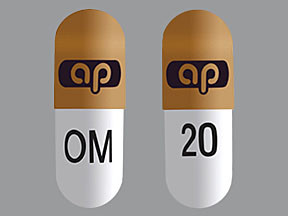
- color
- light orange
- shape
- oblong
- imprint
- logo, OM 20
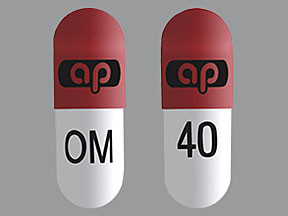
- color
- reddish-pink
- shape
- oblong
- imprint
- logo, OM 40
Reviews
Faq for OMEPRAZOLE/SODIUM BICARBONATE - ORAL
Omeprazole/sodium bicarbonate is used to treat symptoms of gastroesophageal reflux disease (GERD), such as heartburn, regurgitation, and acid indigestion.
Omeprazole belongs to a class of drugs called proton pump inhibitors, which reduce the amount of acid produced in the stomach. Sodium bicarbonate acts as an antacid, neutralizing excess stomach acid.
Common side effects may include headache, stomach pain, diarrhea, nausea, and gas. If experiencing severe or persistent side effects, consult a healthcare professional.
It is important to consult a healthcare professional before taking any medication during pregnancy or while breastfeeding. They can assess the potential risks and benefits and provide recommendations.
Omeprazole/sodium bicarbonate is usually taken once daily, before a meal. Follow the instructions provided by your healthcare professional or the medication label for the specific dosage and timing.
Certain medications may interact with omeprazole/sodium bicarbonate, so it is important to inform your healthcare professional about all the medications you are taking. They can determine if any adjustments or precautions are necessary.
The onset of relief varies for individuals, but omeprazole/sodium bicarbonate may take up to 1-4 days to provide full symptom relief. It is important to continue taking the medication as prescribed for the prescribed duration.
It is recommended to consult a healthcare professional before stopping omeprazole/sodium bicarbonate, as sudden discontinuation may lead to a rebound increase in stomach acid production. They can provide guidance on gradually reducing the dosage.
Elderly patients may be more prone to certain side effects, such as bone fractures or magnesium deficiency. It is important to discuss the risks and benefits with a healthcare professional, who can monitor for any potential issues.
Disclaimer
IMPORTANT: HOW TO USE THIS INFORMATION: This is a summary and does NOT have all possible information about this product. This information does not assure that this product is safe, effective, or appropriate for you. This information is not individual medical advice and does not substitute for the advice of your health care professional. Always ask your health care professional for complete information about this product and your specific health needs.
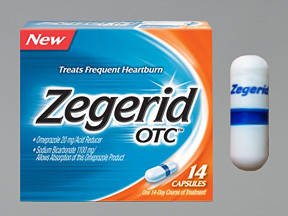
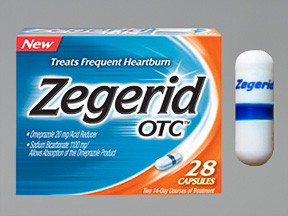
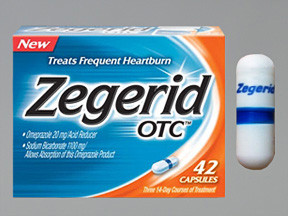
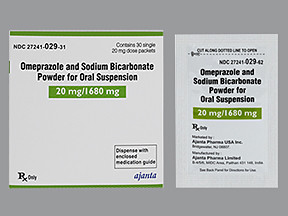
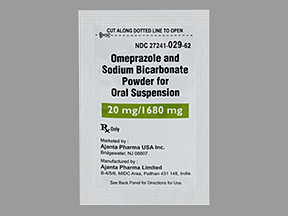
No Reviews Yet